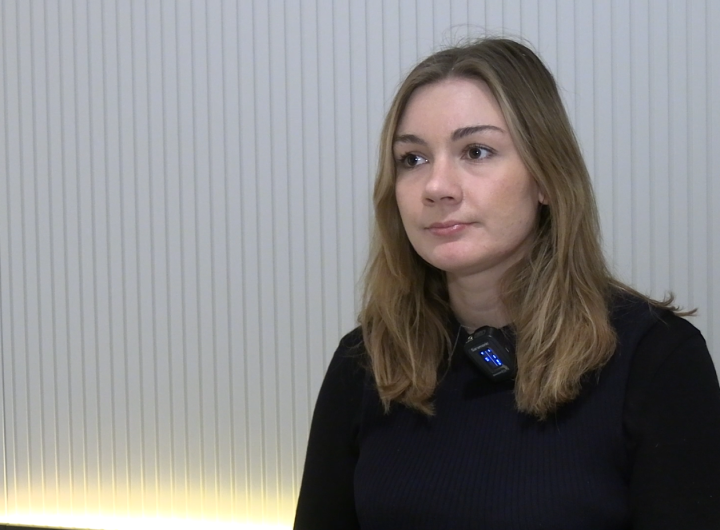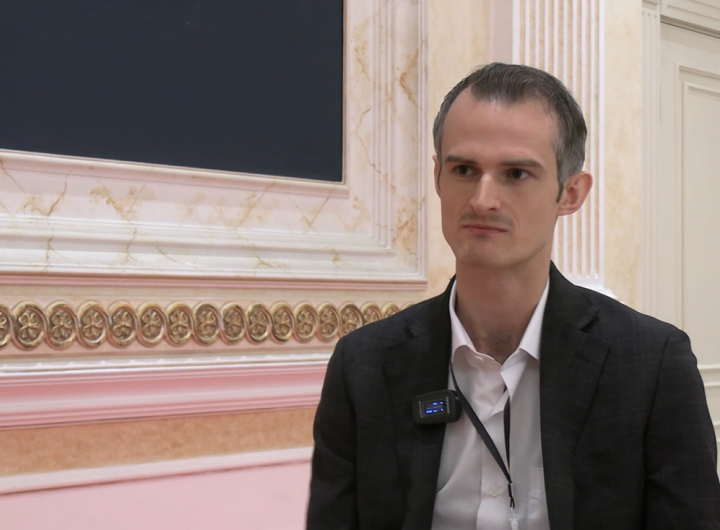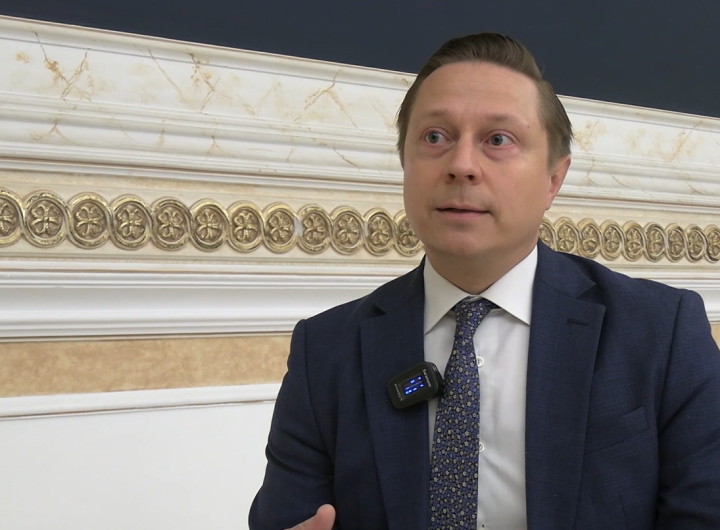
Milo Djukanovic’s downfall has been desired for 17 years in Serbia since the day he pulled Podgorica out of the political grip of Belgrade, says Milan Jovanovic, chairman of the Forum for Security and Democracy.
Jovanović, in an interview for The Geopost, states that he expects the further strengthening of the malignant and increasingly operative influence of Russia in Montenegro.
Russia, he adds, has not yet gained access to the Montenegrin Sea, but “with the departure of Djukanovic from the post of president of Montenegro and head of the DPS, it seems to me that the country may experience an even greater decline in immunity to this kind of Russian influence”.
“It is here that the main motive for which open exponents of that Russian influence supported Millatovic in the second round of the presidential elections should be sought,” he adds.
Jovanovic believes that Montenegro has made enough mistakes in the field of NATO security in the last two years.
“However, the point is that NATO has good security mechanisms to protect itself from this. And also among Russian proxies, among which Montenegro is not the only one, it can successfully compete in this sense, believes Jovanovic.
When it comes to Bosnia and Herzegovina, in the context of the security of the entire region and the impression of the NATO presence there, Jovanovic emphasizes that the nationalist circles in power from Republika Srpska, as well as the opposition, forget one thing that ” there would be neither their Republika Srpska nor Bosnia and Herzegovina without NATO and the USA”.
He adds that Milorad Dodik and the local political elite, which, according to him, is not such, cannot fundamentally change.
“It is a way of reacting or opening a breach that has already been seen, only that it would now be in the execution of the descendants, the heirs of those who have already been tried for it in The Hague”, he said.
When it comes to American policy towards the region, Jovanovic recalls January 2022, when two prominent American institutes, Joseph Hopkins and Woodrow Wilson, formulated a policy proposal for the fragile Balkan area.
“This proposed policy may be called for short the policy of convergence. America, however, still, it seems to me, adheres to that policy of convergence, though it is evident that it is not entirely satisfied with its results so far. This proves and the last reinforcement of the American team for the Balkans, which now includes James Rubin”, recalls Jovanovic.
In this interview, he also emphasizes that Kosovo can no longer be the trump card in Serbia’s foreign policy, or the fulcrum of anti-European strategies.
“Each new phase of political matches, or attempts to avoid or delay the agreed steps in resolving the Kosovo conflict, is less and less effective. And it can be more and more expensive, especially after the West saw the game being played in Kosovo”, he concludes.
Full interview
The Geopost: How do you see the reactions in Serbia regarding the outcome of the presidential elections in Montenegro? The fall of the “dictator” DJukanovic and the victory of Milatovic supported by Seselj, Dodik and Vucic were celebrated. It seems that the outcome of this “battle” in the neighborhood united the Serbian government and the opposition more than anything else?
Djukanovic’s downfall, which has been desired and wanted to for 17 years, was celebrated, right from the day he pulled Podgorica out of the political grip of Belgrade. And they covered up and suppressed and kept silent about the dissatisfaction that their favorites were defeated and eliminated already in the first round of the elections and were forced to support the winner Milatovic, who at least formally accepted the Euro-Atlantic foreign policy orientation of Montenegro, with the hope that there would be an opportunity for it to be resolved in times to come.
The Geopost: Before the parliamentary elections on June 11, can we expect an open and stronger hybrid influence of Serbia and thus Russia on Montenegro?
Yes, but I’d rather see it as a further strengthening of Russia’s malign and increasingly operative influence.
Russia has not yet won access to the Montenegrin sea. Kumbor is still a tourist resort and not a military resort.
And Belgrade has not officially rejected its determination to be part of the EU – it is still thought that it could enter there with the so-called the Serbian world, which in turn wants to develop according to the Russian model.
With the departure of Milo DJukanovic from the post of President of Montenegro and the head of the DPS, it seems to me that Montenegro may be followed by an even more significant decline in immunity to this type of Russian influence.
It is precisely in this that one should look for the main motive for which Milatovic was openly exponents of that Russian influence and supported him in the second round of the presidential elections.
It is precisely in this that one should look for the main motive for which the open exponents of that Russian influence, supported Milatovic in the second round of the presidential elections.
Further strengthening of that Russian influence and the presence of Moscow, on the one hand, will directly lead to the destruction and further dismantling of the real Euro-Atlantic identity, while in Serbia it will cease to even be a mental noun.
The Geopost: With the victory of Milatovic, does Montenegro become a Russian proxy within NATO. In this connection, and regarding the security of the entire region, is the current presence of NATO in Bosnia and Herzegovina almost invisible?
Such a view of the position of NATO and America in Bosnia and Herzegovina is broadcast primarily by nationalist circles from Republika Srpska, both ruling and opposition.
At the same time, they forget that there would be neither their Republika Srpska nor Bosnia and Herzegovina without NATO and the USA.
I’m afraid that Dodik and the political elite there, which isn’t that, can’t fundamentally change anything.
Regardless of the fact that he does not shy away from anything, which he himself points out. But it is a way of reacting or opening a breach that has already been seen, only that it would now be in the execution of the descendants, the heirs of those who have already been tried for it in The Hague.
The Geopost: And for Montenegro?
When it comes to Montenegro, in the security domain of NATO, it has already floundered enough in the past two years. However, the point is that NATO has good security mechanisms to protect itself from this. And also among Russian proxies, among which Montenegro is not the only one, it can successfully compete in this sense.
Even if Mr. Milatovic only started to iron out the stains that were made to him personally, he would score big points in Brussels and with NATO, of course. But on the other hand, it would only intensify, it seems to me, the hidden anger of Moscow, as well as non-European Belgrade, that their real favorites in Montenegro did not actually win these elections.
Such moves would undermine the “marriage of convenience” that Milatovic’s movement made with them in order to win over Milo DJukanovic, who, after the recent statements of the newly elected president, found himself in a serious temptation and to whom he is already retaliating with a threat.
The Geopost: Serbia not only did not harmonize the policy of sanctions against Russia with the rest of the world, but also did not sign the latest initiative of UN member states to condemn the abduction of Ukrainian children by Russia. Quite often, however, we can hear expressions of gratitude to Belgrade for “support” from American officials.
Unfortunately, you are right and it cannot end well.
Because now a kind of justification for not introducing sanctions has turned into pride and boasting – that this is the way things are done and that it has not been done so far. This could have dangerous consequences for Serbia both on the foreign policy and on the internal level.
And Serbia’s absence in condemning the kidnapping of children in Ukraine is simply sad.
In this context, the public mourning for the small Milica in Batajnica, which was killed in the bombing in 1999, is now unraveling its inhumanity because it is primarily in the function of maintaining and repeatedly encouraging anti-Western and anti-American discourse and political attitudes.
When it was not important that even 24 years after the end of NATO’s military action, to list all the civilian victims of that war, seen from that perspective, today’s abduction and forced deportation of children could not even be expected.
The Geopost: In general, how do you see US policy towards the region? The Biden administration appears to be doing everything to appease pro-Russian actors in the region at the expense of genuine pro-Western actors.
Yes, such ratings as contained in your question are not rare, they are frequent. But I would like to remind you, if you remember January 2022, two distinguished American institutes, Joseph Hopkins and Woodrow Wilson, formulated a policy proposal for the fragile Balkan region. And then they recommended it to Biden and the State Department.
That proposed policy, in short, can be called a document with about 60 pages of convergence policy. At the same time, it was thought and still is thought that it will lead to the much-needed convergence of opposing forces in the region, and on the other hand, the divergence of the region, and especially Serbia, from Russia.
This was published less than a month after the beginning of the Russian aggression and the Kremlin’s determination to solve its foreign policy problems, and now we see also internal ones, with aggression and coercion.
America, however, still seems to me to adhere to this policy of convergence – although it is clearly not completely satisfied with its results so far.
This is also confirmed by the latest reinforcement of the American team for the Balkans, which now includes James Ruben.
The Americans have never had a team here in the Balkans that understands the local conditions on the ground to that extent, both in terms of the government and the opposition, which is still struggling. Maybe later it will be clarified why their moves were such that they sometimes quite justifiably caused dissatisfaction.
I also hope that they will achieve the goal of convergence in the Western Balkan region – its democratic transition from the Russian to the Western world.
If they go astray in these efforts, it will not be terrible for them, but for all those who are still hoping for that transition and that convergence.
The Geopost: The Serbian List announced that it will not participate in the April elections in Kosovo. Can we expect new tensions in the north of Kosovo as a way for Vucic to avoid the implementation of the French-German agreement?
Kosovo is actually at the center of the American convergence plan that I talked about a little while ago.
And the whole plan was actually to try to make it impossible for Kosovo to be used as the main fuse or the main switch for the renewal of the conflict in the Western Balkans. That Kosovo can no longer be the main card or trump card in Serbia’s foreign policy deck, or the fulcrum and support of anti-European strategies that are very present, visible and very strong in Serbia.
The Serbian list did not understand that, it left the institutions and that now showed that neither they nor those who influenced it did not understand it. In that sense, the further incidents that followed are no surprise, including these nervous threats of an uprising in the north of Kosovo. So, if you go against the French-German plan, it will be that much worse for the Serbs in Kosovo and for the development and democratic goals of Serbia.
When it comes to the Serbian list, I’m not sure that Vucic has as much supremacy over the politicians from the north of Kosovo as it is assumed and as much attributed to him, especially since their interests are also private, and not always in the service of Serbia’s interests.
At the same time, each new stage of political matchmaking, or attempts to avoid or delay agreed steps in solving the Kosovo conflict, is less and less effective. And it could be more and more expensive, especially after the West saw through the game being played in Kosovo. /The Geopost/

 Disinformation on the Rise, Georgia: Russia Exploits Societal Vulnerabilities in Romania and the Balkans
Disinformation on the Rise, Georgia: Russia Exploits Societal Vulnerabilities in Romania and the Balkans  Olena Churanova: The Kremlin understands that any conflicts or provocations weaken other countries
Olena Churanova: The Kremlin understands that any conflicts or provocations weaken other countries  Klingova: Pro-Kremlin narratives threaten democracy in Slovakia and the region
Klingova: Pro-Kremlin narratives threaten democracy in Slovakia and the region  Vasickova: Chinese disinformation on the rise, amplified by pro-Russian narratives
Vasickova: Chinese disinformation on the rise, amplified by pro-Russian narratives  Election Integrity, Graham Jones: International Cooperation Needed Against Disinformation
Election Integrity, Graham Jones: International Cooperation Needed Against Disinformation  Russian Influence and Hybrid Operations, Pyysalo for The Geopost: Balkans Must Fight Disinformation
Russian Influence and Hybrid Operations, Pyysalo for The Geopost: Balkans Must Fight Disinformation